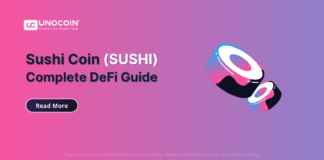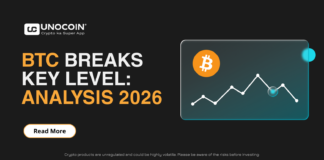As Bitcoin continues to gain legitimacy in global finance, a new trend is quietly unfolding — governments are starting to accumulate Bitcoin as part of their strategic reserves. What was once considered a fringe asset is now being treated as a digital form of gold, offering protection against inflation, currency debasement, and geopolitical instability.
The Shift Toward Digital Hard Assets
Historically, central banks and governments have relied on gold and foreign currencies to manage national reserves. However, the digital era is ushering in a paradigm shift. Bitcoin, with its fixed supply of 21 million coins and decentralised nature, is emerging as a hedge against fiat instability. The asset’s deflationary design and borderless nature make it particularly appealing for countries facing sanctions, capital controls, or inflation.
In fact, we’re already seeing early signs of this shift. Countries like El Salvador and the Central African Republic have not only adopted Bitcoin as legal tender but have also made state-level purchases of BTC. El Salvador, for example, holds over 5,000 BTC in its national treasury, with plans to accumulate more through innovative programs like “Bitcoin Bonds.” This signals the beginning of a broader trend.
Why Are Governments Interested in Bitcoin?
There are multiple strategic reasons why governments might consider holding Bitcoin reserves:
- Hedge Against Inflation: As central banks around the world print more money to manage debt and growth, inflation becomes a looming threat. Bitcoin offers a finite-supply asset that resists inflation by design.
- Monetary Sovereignty: Holding BTC allows countries to bypass the influence of dominant global currencies like the US dollar. This is particularly relevant for nations under sanctions or those seeking financial independence.
- Geopolitical Leverage: In a multipolar world, Bitcoin may serve as a neutral asset not tied to any one country’s policy or economy — much like gold but more portable and verifiable.
- Innovation Branding: Countries investing in Bitcoin signal to the world that they’re forward-thinking and open to blockchain-based innovation. This can help attract tech talent, capital, and crypto-native businesses.
Could India Explore Bitcoin Reserves?
India, with its vast IT expertise and growing interest in Web3, stands at a unique crossroads. While the regulatory framework around crypto is still evolving, there is an opportunity for India to explore Bitcoin not as a threat to the rupee, but as a strategic asset class — similar to how countries stockpile oil or gold. A carefully considered allocation of even a fraction of forex reserves into BTC could place India ahead in the digital asset race.
Moreover, Indian institutions are beginning to engage with crypto on various levels. If regulatory clarity improves, sovereign-level interest in Bitcoin may not be far behind.
Also read: Top 10 Cryptos to Invest in July 2025
Final Thoughts
Bitcoin is no longer just a speculative asset. It’s becoming a part of strategic economic planning for future-ready governments. As fiat systems continue to be tested by inflation, debt, and political uncertainty, Bitcoin’s role in sovereign reserves may grow significantly in the coming decade.
Governments that move early will not only gain exposure to a potential reserve-grade asset but will also set the tone for financial innovation. The global Bitcoin race has begun — and the question is, who will lead it?
Please find the list of authentic Unocoin accounts for all your queries below:Twitter: https://twitter.com/Unocoin
Telegram Group: https://t.me/Unocoin_Group
Telegram Channel: https://t.me/+fasQhTKBsfA5N2Zl
E-mail id: [email protected]
Other links: linktr.ee/unocoin
Contact details: 7788978910 (09:30 AM IST – 06:30 PM, Mon-Sat)
App store link: https://apps.apple.com/us/app/unocoin/id1030422972?ls=1
Playstore link: https://play.google.com/store/apps/details?id=com.unocoin.unocoinwallet
Disclaimer: Crypto products are unregulated as of this date in India. They could be highly volatile. At Unocoin, we understand that there is a need to protect consumer interests, as this form of trading and investment has risks that consumers may not be aware of. To ensure that consumers who deal in crypto products are not misled, they are advised to DYOR (Do Your Own Research).







